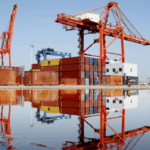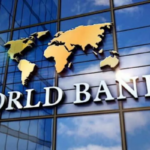Russia has announced a shift in its approach to Africa, rejecting the long-standing model of foreign aid in favour of partnerships based on mutual growth. The country says its support for African nations will not be based on dependency but rather on cooperation that benefits both sides.
This comes at a time when the United States is reducing its foreign aid commitments, prompting African leaders and development experts to examine the long-term impact of external assistance.
Read also: China introduces new measures to safeguard jobs and exports amid rising trade tensions
Technology and tools over handouts
In a recent interview with Sputnik Africa, Anna Popova, head of Russia’s health and consumer protection agency, explained that Russia’s support would be focused on capacity building.
“We share technology, experience, and tools so African nations can protect their people and develop independently,” she said. “We work for the benefit of the host country—unlike those who operate solely for their own interests.”
Russia’s model promotes the sharing of skills and knowledge rather than the delivery of direct aid packages. According to Popova, this method enables local development without fostering reliance on outside help.
Read also: Nigeria strengthens trade and investment ties with the United Kingdom
Russia’s continued humanitarian involvement
While distancing itself from traditional aid, Russia has not completely ruled out humanitarian efforts. In a recent initiative in Niger, Russia provided medicine, food, and vaccines to treat obstetric fistulas, a serious medical condition that affects many women in underserved regions.
In 2023, President Vladimir Putin also pledged 200,000 tonnes of free grain to six African countries, signalling that Russia still sees a role for emergency aid when necessary.
Read also: Hotel development pipeline in Africa grows, driven by Egypt and Marriott
Global trends in foreign aid reconsideration
Russia’s new approach reflects a wider global trend in how aid is perceived and delivered. Many countries and institutions are reassessing the effectiveness of aid models that have dominated since the post-colonial period.
This reassessment has been intensified by recent policy changes in the United States. In January 2025, U.S. President Donald Trump signed an executive order to pause all USAID activities for 90 days. The move sparked concern across African nations that have long relied on U.S. funding.
However, some experts suggest the impact may not be as severe as initially feared. Caitlin Burton, speaking to Business Insider Africa, said, “Many U.S. aid programs cost far more than necessary and have limited impact. What Africa loses on paper may not match real-world outcomes.”
Read also: Intra-African Trade and LPG key to addressing Africa’s $15bn infrastructure gap
A push for sustainable partnerships
There is growing consensus among African policymakers, researchers, and civil society leaders that the continent should prioritise sustainable development grounded in self-reliance. Many argue that true progress lies in partnerships that offer shared growth, transparency, and long-term empowerment.
The developments in Russian and U.S. foreign policy may serve as a turning point, encouraging African nations to define new paths forward—ones that reduce dependence on external actors and focus on building internal capacity.










